7. Naked Lunch (1991)
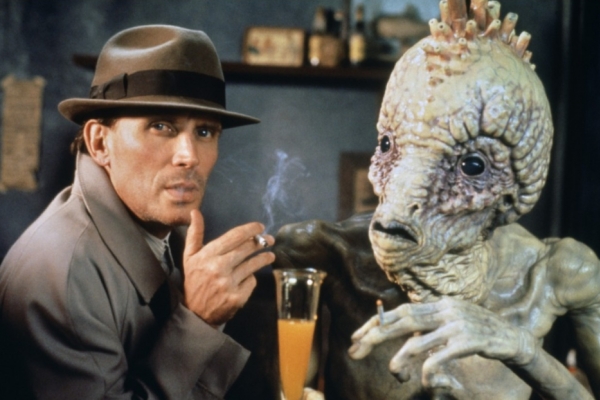
Cult icon and Beat legend William S. Burroughs’ cult novel was deemed “unfilmable” from day one, but did that deter Cronenberg from taking an unconventional and utterly transgressive swing at adapting it? Of course not, and the results, while at times completely confounding, are also audaciously cinematic as well as weirdly wonderful.
Smartly mixing Burroughs’ original novel along with biographical benchmarks of the writer’s notorious personal life along with elements of Cronenberg’s own life as well, the resulting film is a startling portrait of the creative process, a writer’s life, and a junkie’s misfortune as never seen before.
William Lee (Peter Weller) is the Burroughs alter-ego, an insect exterminator, closeted homosexual, and junkie in 1953 New York who will soon end up in the rutted, winding streets of Tangier. William and his wife Joan (Judy Davis, excellent) soon discover they like to ingest the bug powder William uses on the job, resulting in a “Kafka high” that ultimately ends in tragedy as well as to the hallucinatory city/state of mind familiar to Burroughs’ fans as Interzone.
The beetle-like typewriters with talking sphincters, and reptilian Mugwumps with addictive jism are just a few of the unromantic oddities that await the adventurous viewer in this satirical, startling, and stylish film. Never less than riveting, Naked Lunch is a disturbing, darkly comic, and mordantly moving, if somewhat unappetizing, feast.
6. Dead Ringers (1988)
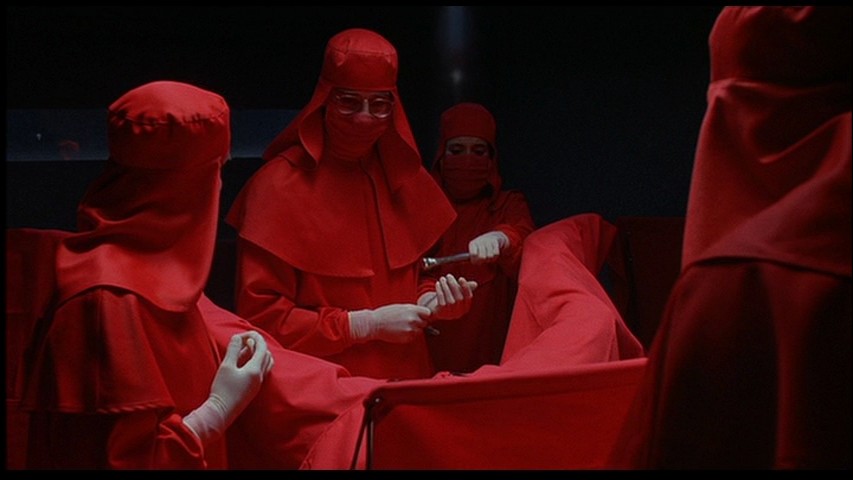
An award-winning classic in Cronenberg’s substantial canon (it won 11 Genies Awards, the Canadian Oscar equivalent), Dead Ringers draws much of its shattering effect by drawing from the deep dark well of paranoia, urban anxieties, and a shocking story inspired by real-life identical twin gynecologists, Stewart and Cyril Marcus.
In the film they’re fictionalized, obviously, though their drug-addicted and misogynistic leanings remain, amped up in terrifying measure courtesy of Cronenberg’s clinical presentation and a balls-out brilliant paired performance from Jeremy Irons.
As Beverly and Elliot Mantle, Irons deftly differentiates his dual roles through nuances of expression, posture, and innuendo, selling the many unsavory story elements (such as swapping their love interests and patients), and a shout out should go to Geneviève Bujold, a cool hand in the role of Claire, an effete actress who loves Elliot, the sweet one, but despises Beverly, the darker half.
Dead Ringers is a draining, disturbing, psychosexual journey into separation, and madness, and one that stares unflinching into the dark void, offering little comfort but remaining gripping all the same.
5. Eastern Promises (2007)
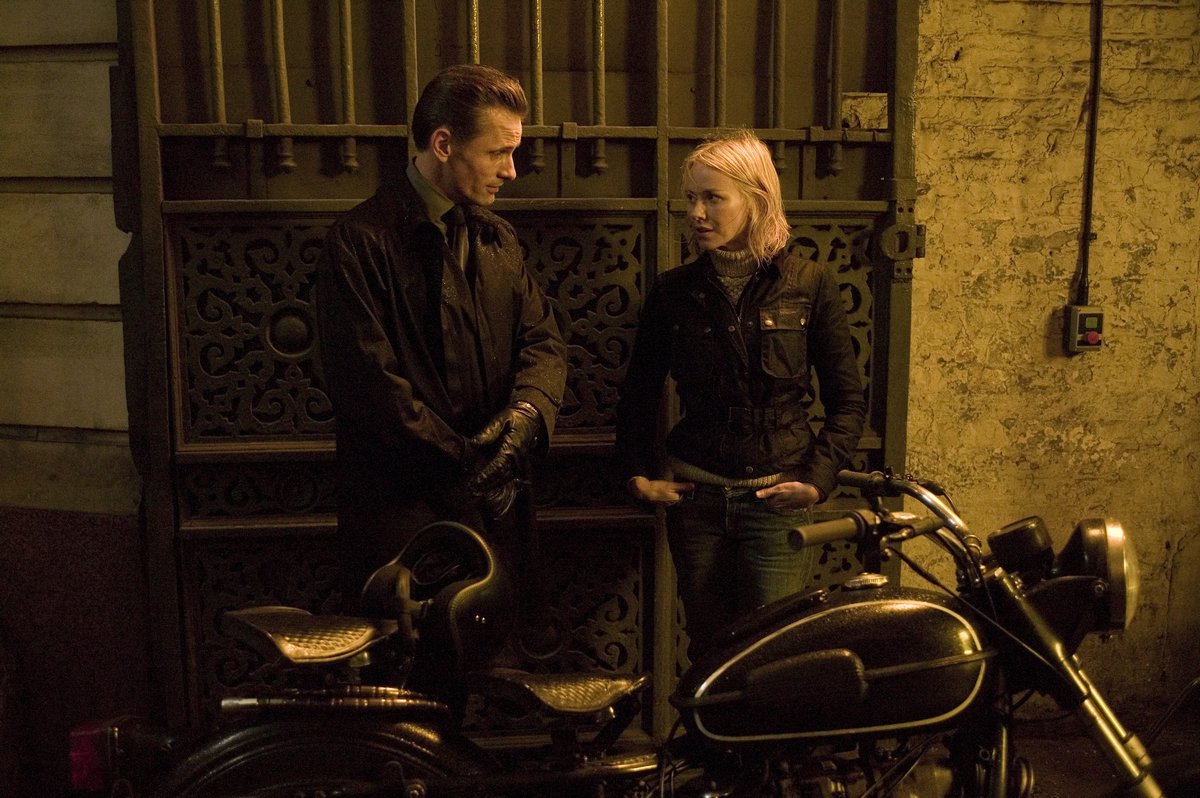
The most startling and memorable takeaway from this much-acclaimed gangster film has got to be the uncompromising, unforgettable and unflinching bathhouse brawl––featuring a notorious au naturel knife fight with Viggo Mortensen––that once viewed can never be unseen. This extraordinary follow-up and comparable companion piece to A History of Violence (2005), Eastern Promises is a darkly disturbing, morally complex, and frighteningly enigmatic masterpiece.
Anna Khitrova (Naomi Watts) is a Russian-British midwife living in London who is soon drawn into a shocking and upsetting world of Russian mobsters and nasty ne’er-do-wells after a drug-addicted 14-year old prostitute dies in childbirth. In a much deserved Oscar-nominated performance is Mortensen as Nikolai Luzhin, a strong-arm thug for a messy mobster named Kirill (Vincent Cassel), who is the loose canon son of a Russian godfather known as Semyon (Vincent Cassel).
But man, no matter what you think or say about Eastern Promises, all discourse must circle back to that intensely unforgettable knife fight. Holy shit. Roger Ebert ecstatically proclaimed that it “sets the same kind of standard that The French Connection set for chases. Years from now, it will be referred to as a benchmark,” and who are we to disagree?
4. The Fly (1986)
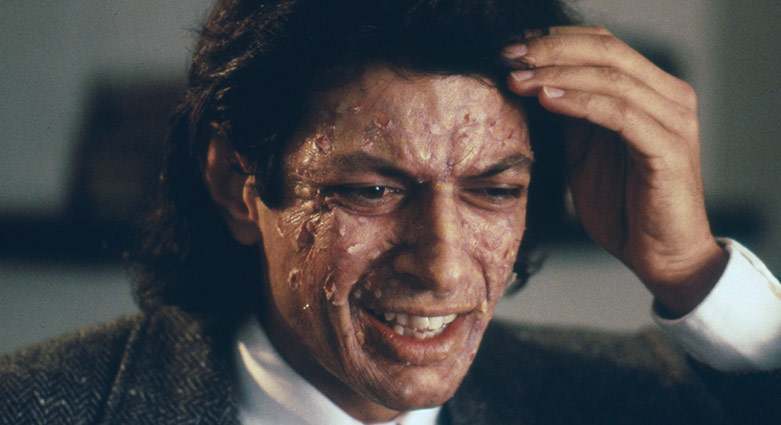
“I’m an insect who dreamt he was a man, and loved it. But now the dream is over, and the insect is awake.”
So much more than a remake of the 1958 sci-fi classic, Cronenberg’s vision begins as sweet romance between Geena Davis’ journalist Veronica Quaife and the eccentric scientist Seth Brundle, played with precision by a never better Jeff Goldblum. But soon some bad decisions and a fluke housefly in a telepod mishap mucks up everyone’s fun. The results, while terrifying, are pretty rewarding for the audience, too, if you can stomach it.
At the time, in 1986, much was made of The Fly being an AIDS allegory, but the all-embracing idea of death and loss is dealt with as well, along with Cronenberg’s pet fascinations with body horror and societal dry-rot as well. Be afraid. Be very afraid.
3. A History of Violence (2005)
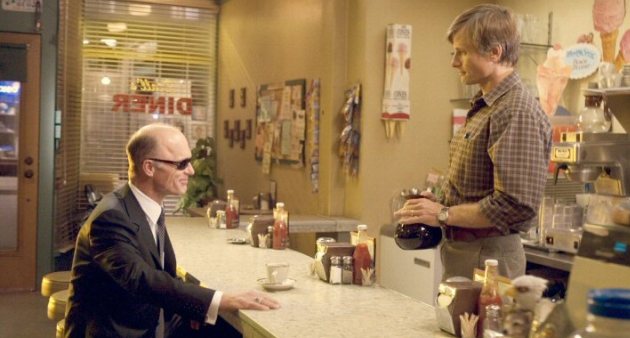
Cronenberg tackles and takes apart violence, human nature, and the valued American mythology around self-reinvention in this masterful and messy psychological thriller, that’s also one of the best films of the 2000s, hands down.
Tom Stall (Viggo Mortensen) is a small-town family man who runs a diner and who proves startlingly efficient at deadly force when two sadistic thugs (Greg Bryk and Stephen McHattie) turn up at his eatery looking for trouble.
His lethal reprisal suggests a secretive past; his loving wife Edie (Maria Bello), his teenage son Jack (Ashton Holmes), and his daughter Sarah (Heidi Hayes) suddenly see him with new eyes; and there is unwanted attention from the national news media––and from a formidable Philadelphia gangster, Carl Fogarty (Ed Harris), with one hell of an ax to grind.
Cronenberg’s most universally-acclaimed film, A History of Violence also received Oscar nominations for Best Adapted Screenplay (Josh Olson) and Best Supporting Actor (William Hurt)––and truthfully it deserved plenty more. To miss it wouldn’t be wise.
2. Crash (1996)
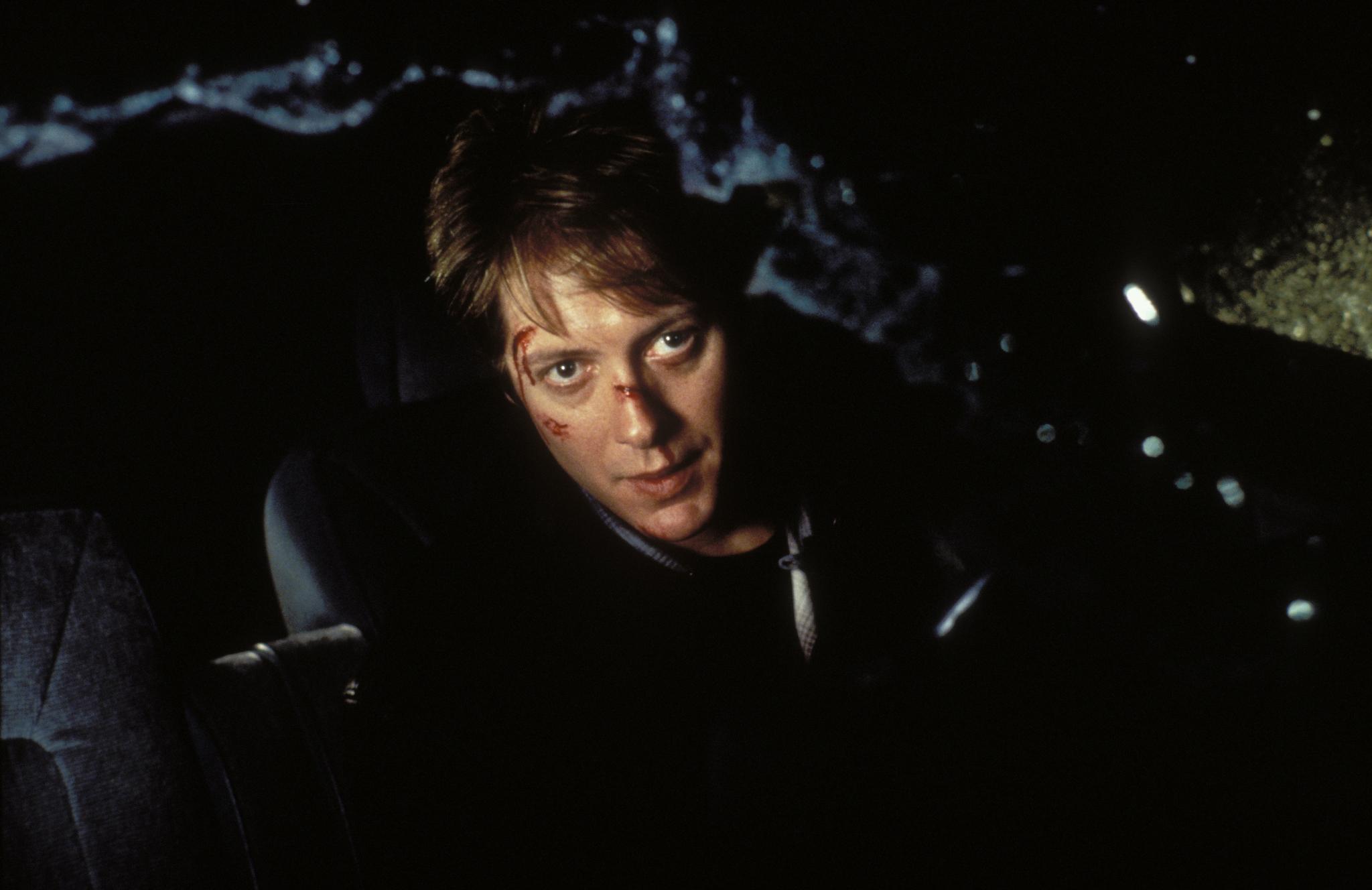
While Cronenberg’s version of Crash contains considerably less of the explicit sex found in the J.G Ballard source novel, it’s still a polarizing study of modern pathologies. Shot with an icy and detached formalism, Crash won a Special Jury Prize at the 1996 Cannes Film Festival for originality, for daring and for audacity.
The ensemble cast is in fine form and includes Rosanna Arquette, Holly Hunter, Elias Koteas, James Spader, and Deborah Kara Unger as an almost cult-like assemblage of people who take extreme sexual pleasure via automobile accidents.
Images of sex and violence are strongly juxtaposed in a guilefully fetishized manner which is easily too much for old-fashioned audiences in what Roger Ebert described as: “…like a porno movie made by a computer: It downloads gigabytes of information about sex, it discovers our love affair with cars, and it combines them in a mistaken algorithm. The result is challenging, courageous and original.”
1. Videodrome (1983)
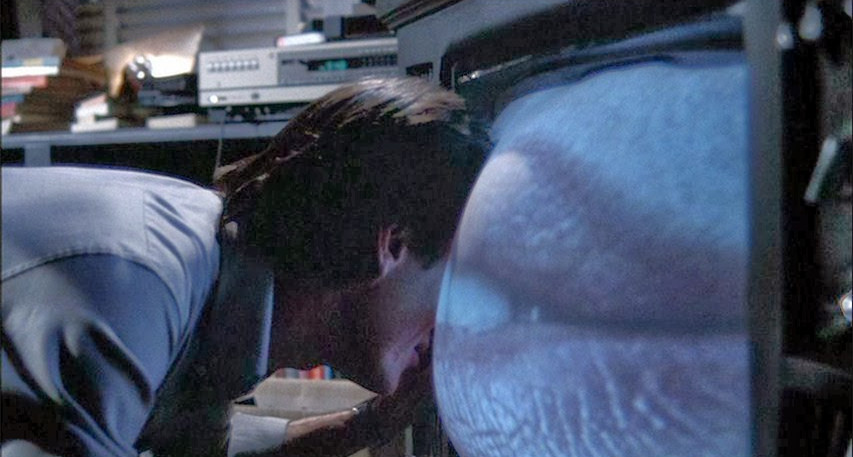
Videodrome is vintage Cronenberg and easily his most influential and conceptually ingenious film. Chronicling psychological and societal collapse with an Hieronymus Bosch-like eye for morbid detail and deranged intelligence, this is a film that’s impossible to forget.
Described by Andy Warhol as “A Clockwork Orange of the ‘80s”, this sci-fi-horror hybrid from Canadian iconoclast David Cronenberg presents a prophetic vision of a dystopian future where television, media piracy, pay-per-view violence, rampant perversion and torture porn rule the ratings.
Max Renn (James Woods) is the owner of a trashy TV station who’s forever searching for risqué programming to broadcast. Soon Max discovers the torture/snuff show known as “Videodrome” and he must acquire it for his network. Along the way Max meets radio personality/sadomasochistic psychiatrist and femme fatale Nicki Brand (Deborah Harry) and events intensify as an erotic dream logic kicks in.
Part aphrodisiac and part body horror nightmare, Videodrome is a sensual and scary tour de force and makes for absolutely indispensable viewing.
Author Bio: Shane Scott-Travis is a film critic, screenwriter, comic book author/illustrator and cineaste. Currently residing in Vancouver, Canada, Shane can often be found at the cinema, the dog park, or off in a corner someplace, paraphrasing Groucho Marx. Follow Shane on Twitter @ShaneScottravis.